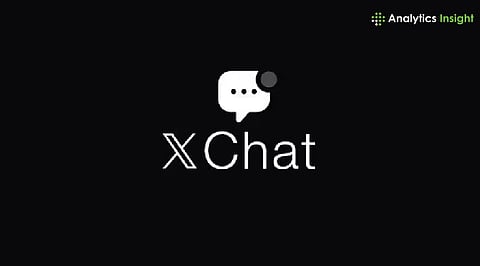

Musk’s XChat integrates end-to-end encryption and vanishing messages to prioritize user privacy.
Phone-free audio/video calls and secure file sharing set XChat apart from competitors.
XChat is a strategic step toward Musk’s vision of an all-in-one super app.
Few figures are as polarizing and eccentric as Elon Musk in this digital age. From revolutionizing electric cars with Tesla to sending rockets into space with SpaceX, Musk has upended industry after industry. Now, he’s setting his sights on how we message one another online.
Through XChat’s launch, Musk is directly targeting WhatsApp and Telegram. The new offering is a part of his revamped social networking platform X, previously known as Twitter. The feature is being implemented as a private, secure alternative for users globally.
This innovation is reportedly offering end-to-end encryption, disappearing messages, file sharing, and even voice and video calls without phones.
This new contribution is not another messaging app. This will be a part of Musk’s long-term vision to create a Western analog to China’s WeChat, an ‘everything app’ where users can message, bank, shop, consume news, and engage with businesses, all in the same place. XChat is the next step in that vision.
Unveiling in an era where digital privacy is increasingly in the spotlight and faith in big tech still falters, Musk’s encrypted messaging app provides users with something that might resonate deeply: agency. Agency over data, agency over identity, and agency over how we connect.
So, how does XChat measure up? And is it capable of shaking the foundations of apps that already have billions of users?
Ever since rebranding Twitter as X, Musk has been vocal about transforming the social media into a multi-purpose platform that unifies social media, payments, content, and private communication under one digital umbrella. XChat is perhaps one of the easiest strides in that direction.
Instead of going all out with a freestanding app, Musk has integrated XChat into the X ecosystem itself. That brings it an immediate tap into X’s already-existing user base without going through the friction of starting from scratch.
It also aligns well with his larger strategy to build an efficient, feature-heavy super app for global consumption.
Also Read: Elon Musk’s DOGE Exit: Looking Back at His Major Contributions
Unlike other messengers that need a mobile number, XChat operates independently of phone numbers. This renders the users more anonymous and flexible, particularly in areas with worries over digital surveillance.
Its primary features are:
End-to-end encryption: Musk asserts that the application employs ‘Bitcoin-style encryption,’ which is based on the Rust programming language.
Disappearing messages: Users are able to send messages that are deleted after viewing.
Secure audio/video calls: Communication remains confidential, and no phone number is needed.
File sharing: From documents to videos, users can upload different types of files.
Passcode protection: A 4-digit lock provides an added measure of security.
Together, these components make XChat a privacy-forward alternative, designed for users seeking greater control over their online interactions.
How XChat Stacks Up Against WhatsApp and Telegram
WhatsApp holds an advantage over Telegram in terms of scale and reliability. Telegram is an alternative for power users and the channel approach. Privacy-wise, XChat is the most feature-rich for the moment, but it needs to demonstrate that scalability is available without any compromise.
Musk has boasted of ‘Bitcoin-style encryption,’ although what that specifically entails is unclear. Although the app is coded in Rust, a secure-language reputation, technologists are holding off for technical briefings or third-party audits before endorsing its security.
Trust is currency in today’s environment. For XChat to succeed, promises need to be made about privacy and then proven.
XChat is still in beta, but the feature is available to a select community of users. This is already causing a buzz among tech observers and early adopters.
The new social media maneuver’s ultimate success will come down to user experience, stability, and whether Musk can listen to feedback. If XChat is effective and secure, it could lay the foundation for even more sophisticated features, perhaps even payments, live streaming, or AI integrations within the same framework.
With XChat, Elon Musk is not merely rolling out a messaging application, he’s setting the stage for something even grander. Regardless of whether it evolves into the central hub of secure communication or merely a stepping stone in his greater plan, the action is aggressive and unconventional.
This will provide tough competition to its contemporaries. WhatsApp and Telegram have established user bases, refined interfaces, and decades of fine-tuning. But Musk has a history of disrupting industries that others believed were unbreachable.
Also Read: Elon Musk’s Refocus to Business: Will Tesla and SpaceX Recover from Political Backlash?
